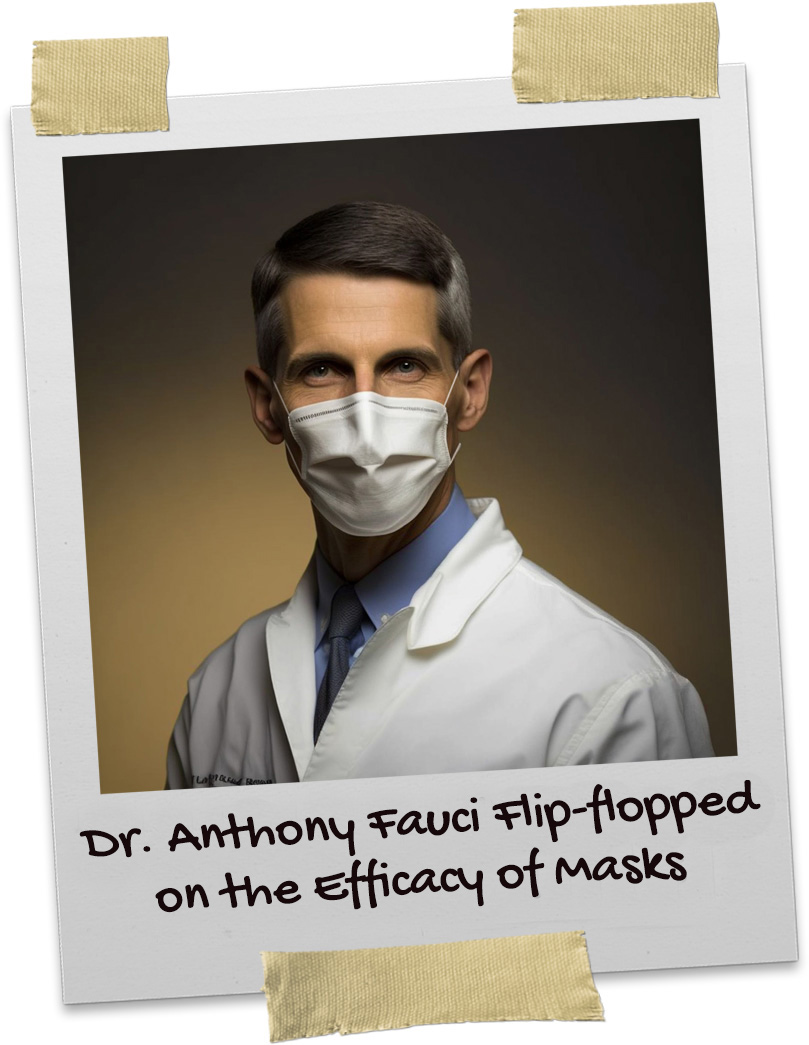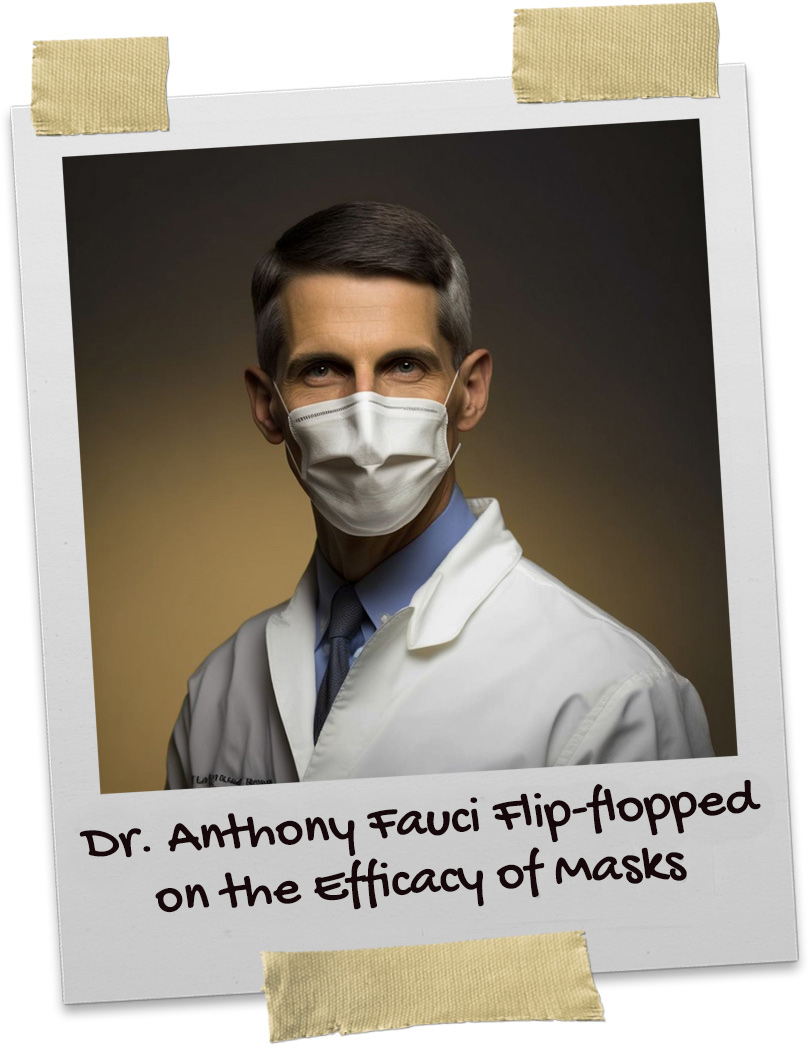Dr. Anthony Fauci Flip-flopped on the Efficacy of Masks


The COVID-19 pandemic brought about a great deal of uncertainty and misinformation, which included the effectiveness of face masks. This led to a lot of confusion among the public about the appropriate use of masks, and people looked for guidance from health experts like Dr. Anthony Fauci, the director of the National Institute of Allergy and Infectious Diseases. However, Dr. Fauci's guidance on masks was a source of controversy, as he was perceived to have changed his position on the efficacy of masks multiple times during the pandemic.
During an interview on 60 Minutes in March 2020, Fauci stated that masks should be reserved for sick individuals as a means of source control, and he saw no need for healthy people to wear them while out and about. He said:
“When you’re in the middle of an outbreak, wearing a mask might make people feel a little bit better and it might even block a droplet, but it’s not providing the perfect protection that people think that it is. And, often, there are unintended consequences—people keep fiddling with the mask and they keep touching their face.”
As the scientific understanding of the virus improved and the data on the mode of transmission of COVID-19 was more understood, Dr. Fauci began to acknowledge the potential benefits of masks. In April 2020, Dr. Fauci stated that masks could be helpful in slowing the spread of the virus, but that they were not a substitute for other public health measures such as social distancing. He also stated that the decision to wear a mask should be based on local conditions and the level of virus transmission in each community.
In July 2020, Dr. Fauci changed his position again, stating that masks should be worn universally, regardless of the level of transmission in each community. He now claimed masks were an effective tool in slowing the spread and preventing a resurgence of COVID-19 cases.
The flip-flopping on masks was a source of confusion and frustration among the public, as well as a topic of political and social debate, and his seemingly political ulterior motives sowed seeds of distrust in him.



